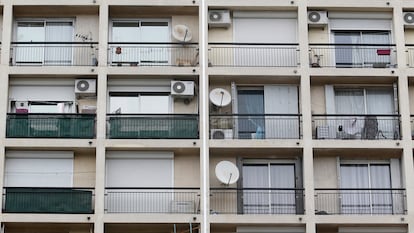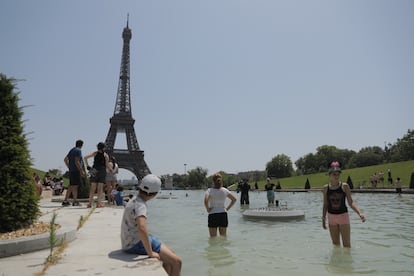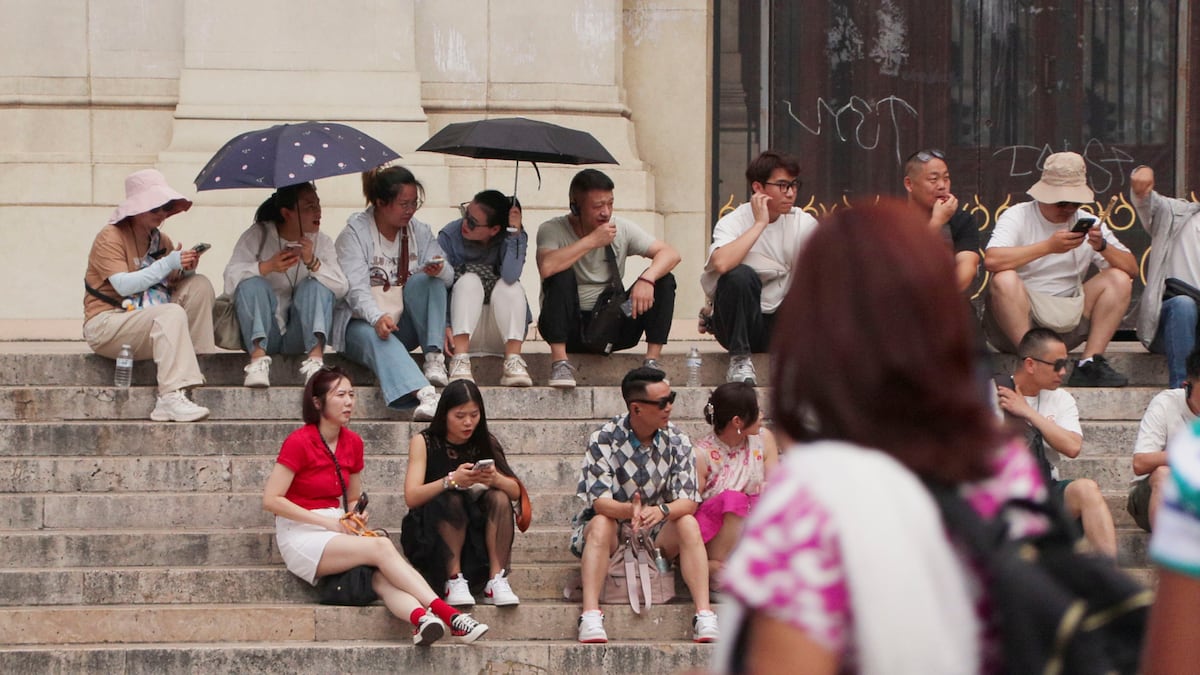In a politically polarized France, where every issue quickly sparks heated debate, a new point of division has emerged these days: air conditioning. The country, experiencing its second heat wave of the summer this week with temperatures exceeding 42°C (108°F), has traditionally been reluctant to embrace air conditioning due to energy costs and environmental impact. However, increasingly frequent heat waves are breaking down this resistance.
The divide is evident in the press: “France is, absurdly, against air conditioning,” ran the economic daily Les Echos. Atlantico wrote that “environmentalists have deprived France of air conditioning.” Local outlet Ouest France called it “air conditioning: an individual solution but a collective failure,” while Libération labeled it “an ecological contradiction.”
France is among the countries least prepared for heat waves like those this summer. Only 25% of households have any cooling system (including electric fans), and just 7% have an air conditioning unit. The main issue is in homes, but what is more worrying is that very few public buildings have cooling systems, including schools and hospitals.
Only 7% of public schools — out of around 45,000 nationwide — are equipped with any cooling system to relieve the heat. At the end of June, during the first heat wave of the summer, classes had to be suspended in over a thousand schools for this reason. In Paris, many metro lines, especially commuter trains, do not have air conditioning.
The extreme temperatures recorded in recent days, and the clear evidence that such extremes will increase, have sparked political debate. The left opposes widespread air conditioning installation for environmental reasons, while the government acknowledges the need to equip schools and hospitals. The far right, led by Marine Le Pen, who has most strongly advocated preparing the country for what lies ahead, is calling for a “major national air conditioning plan.”
Several members of her party, the National Rally (Rassemblement National), have been pushing for air conditioning in schools, hospitals, and nursing homes for weeks. “Public services are unable to function because they don’t have air conditioning, unlike dozens of countries around the world,” Marine Le Pen protested a few weeks ago during the first heat wave of the summer. “With the temperatures we’re facing, air conditioning is essential to protect the most vulnerable,” defended National Rally deputy Yoann Gillet yesterday.
 Several air conditioning units in a building in Marseille.Godong (Universal Images Group/Getty Images)
Several air conditioning units in a building in Marseille.Godong (Universal Images Group/Getty Images)
The Union of the Right for the Republic (UDR) has proposed a law to make it mandatory to equip the aforementioned spaces with air conditioning to “protect vulnerable people.” The government acknowledges that it is necessary in some cases but believes that widespread installation could worsen climate change. The left agrees that it is needed for vulnerable groups but sees air conditioning as a temporary fix that does not address the root cause of rising temperatures: climate change. Instead, they propose better building insulation and more green spaces in cities.
According to Ademe, the French agency for ecological transition, by 2050 most buildings in France, whether old or historic, will not be adapted to the temperatures to come. An Opinion Way survey for France Energie found that 75% of French people are reluctant to install any cooling system at home, citing environmental concerns and energy costs.
The problem of energy costs is not limited to summer. In winter, to save energy, some establishments and homes do not turn on heating. Other obstacles include the age of many buildings, some of which are historical monuments, where even minimal work that alters the façade is prohibited.
Without air conditioning, the French have been cooling off as best they can: in crowded, free-access pools while temperatures remain high, and in newly designated swimming areas along the Seine. In some Parisian municipalities, such as Chelles, residents have even defied bans on entering the river, despite water pollution, because it was the only way to escape the heat.
The memory of the 2003 heat wave, which killed nearly 14,000 people in August — mostly elderly individuals living alone — still looms large. The country was unprepared then, as such extreme events were less frequent.
This summer, the early heat wave has caused a spike in drownings in France. From early June to the end of July, a total of 702 people drowned, 50% more than in the same period last year.
 People try cool off in the Fontaine of the Trocadero garden (Fontaine du Jardin du Trocadero) in Paris, France on July 2, 2025. Mohamad Salaheldin Abdelg Alsayed (Anadolu/Getty Images)
People try cool off in the Fontaine of the Trocadero garden (Fontaine du Jardin du Trocadero) in Paris, France on July 2, 2025. Mohamad Salaheldin Abdelg Alsayed (Anadolu/Getty Images)
Sign up for our weekly newsletter to get more English-language news coverage from EL PAÍS USA Edition
